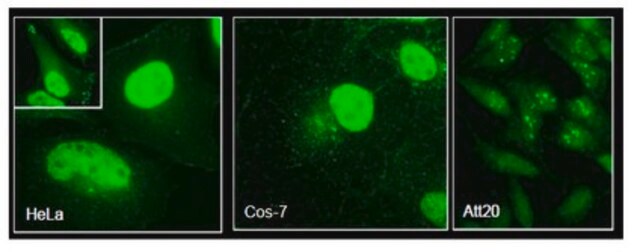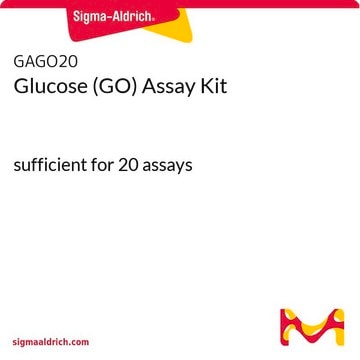ABT80
Anti-Girdin, coiled-coil region Antibody
from rabbit, purified by affinity chromatography
About This Item
Produits recommandés
Source biologique
rabbit
Niveau de qualité
Forme d'anticorps
affinity isolated antibody
Type de produit anticorps
primary antibodies
Clone
polyclonal
Produit purifié par
affinity chromatography
Espèces réactives
monkey, human
Réactivité de l'espèce (prédite par homologie)
rat
Technique(s)
immunocytochemistry: suitable
immunoprecipitation (IP): suitable
western blot: suitable
Numéro d'accès NCBI
Conditions d'expédition
wet ice
Modification post-traductionnelle de la cible
unmodified
Informations sur le gène
human ... CCDC88A(55704)
Description générale
Spécificité
Immunogène
Application
Western Blot Analysis: A representative lot detected Girdin in Cos-7 cell lysate. Uncharacterized bands may be observed in some cell lysates.
Immunoprecipitation Analysis: A representative lot immunoprecipitated Girdin in HeLa cell lysates (Prof. P. Ghosh, Department of Medicine, Division of Gastroenterology and Hepatology, UCSD School of Medicine and Veterans Affairs Medical Center). Uncharacterized bands may be observed in some cell lysates.
Cell Structure
Cytoskeletal Signaling
Qualité
Description de la cible
Forme physique
Stockage et stabilité
Remarque sur l'analyse
HeLa cells
Autres remarques
Clause de non-responsabilité
Not finding the right product?
Try our Outil de sélection de produits.
Code de la classe de stockage
12 - Non Combustible Liquids
Classe de danger pour l'eau (WGK)
WGK 1
Point d'éclair (°F)
Not applicable
Point d'éclair (°C)
Not applicable
Certificats d'analyse (COA)
Recherchez un Certificats d'analyse (COA) en saisissant le numéro de lot du produit. Les numéros de lot figurent sur l'étiquette du produit après les mots "Lot" ou "Batch".
Déjà en possession de ce produit ?
Retrouvez la documentation relative aux produits que vous avez récemment achetés dans la Bibliothèque de documents.
Notre équipe de scientifiques dispose d'une expérience dans tous les secteurs de la recherche, notamment en sciences de la vie, science des matériaux, synthèse chimique, chromatographie, analyse et dans de nombreux autres domaines..
Contacter notre Service technique








